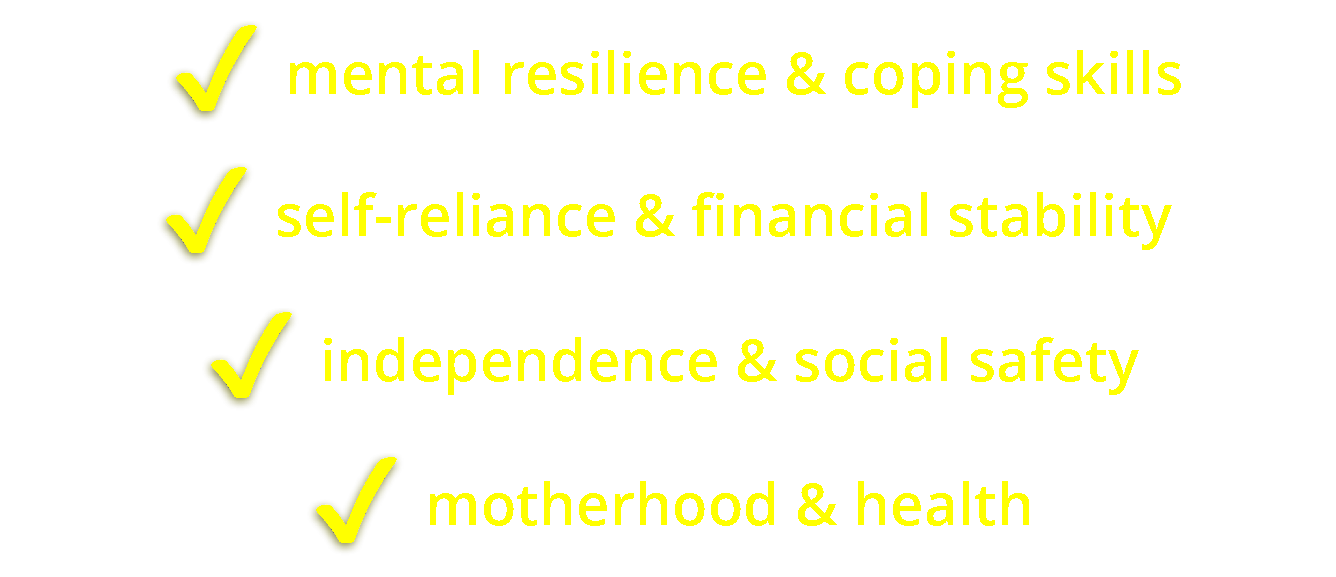

The program wants to prepare young women to run a small business. Small business is above anything about skills, instinct and determination: Technical skills to produce a commodity or service. Social and organisational skills to collaborate and plan in a business environment. Entrepreneurial instinct to see new opportunities when they come along. And last but not least, a determination to make it succeed. Also a determination to overcome barriers and anxieties in the context of Nigerian culture.
program objectives
The program’s central objective is to enable young women to earn a steady income and build a future. This includes nurturing a long term perspective related to personal goals regarding independence, personal growth, parenthood and family life. Furthermore, being a female entrepreneur in West Africa is not only about self-sufficiency. It is also about social safety in an environment, which is considerably more patriarchal and nepotistic.


some further reflections
When developing a training program for people in non-western cultures, one must first recognize that our own notion of business, which we often take for granted too easily, is also culturally conditioned. The next step starts with identifying ways of doing business that work in the Nigerian sociocultural and commercial context. Building on its assets often presents new and unique opportunities.
It’s important to acknowledge that there are more ways of doing business. The Western way is just one of them. There is also a Nigerian way which comes with its own set of values and skills.

Perceptions of business
Small business in Nigeria can take many different forms. Most of them share that they are essentially strategies to survive in an insecure environment. They are often also more informal when compared with western business culture. It relies considerably more on social interaction, implicit understanding and mutual leniency.
But as western culture is increasingly finding its way in Nigerian society, notions of business are shifting as well. At the same time this presents new windows of opportunity that can be addressed accordingly.

Motherhood & work
Many young women in Nigeria are single mothers. It can be quite challenging to combine motherhood with work. However, different from western culture work situations in Nigeria are often very hybrid, allowing for spontaneous and informal events to blend in.
Consequently, daily life is more fluid and considerably more dependent on mutual support and collaboration, formally and informally. This difference in the sociocultural context must be appreciated since it also presents valuable assets that can be built on.

Evolutionary context
There is no such thing as a golden standard for how doing business. Where business in western culture depends more on softs skills, business in Nigeria can be considerably more no-nonsense, direct and aimed at closing the deal. As western ways of life are increasingly finding their way into Nigerian culture, perceptions and expectations are changing also.
This transformative context must be taken into account because it not only creates new opportunities but also asks for a different mindset to capitalize them.
Related pages
Share the dream
Our program is offered on a non-profit basis. Please consider making a donation. Or perhaps you like to adopt a student and share in her dream. More information is available on our contact page.

All rights reserved – Alle Rechte vorbehalten – Alle rechten voorbehouden – Tous droits réservés


